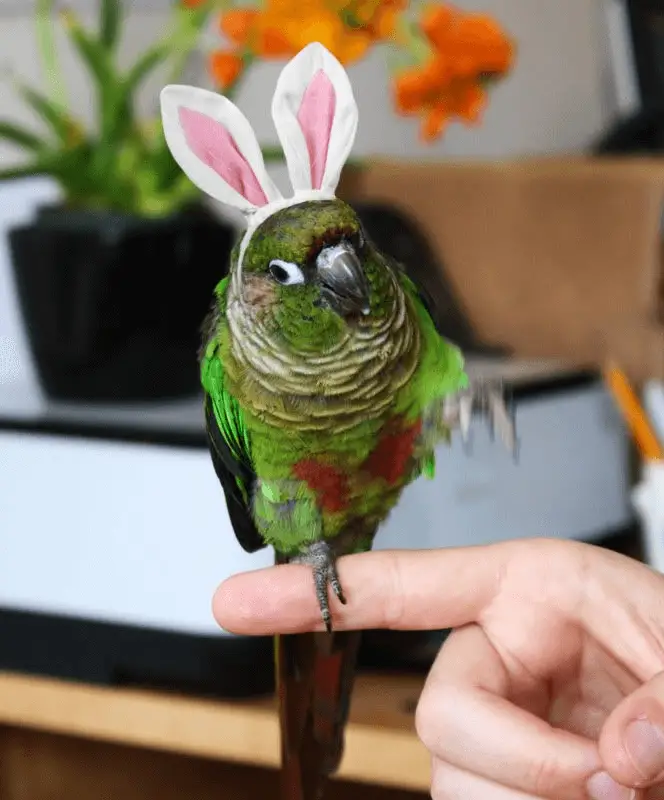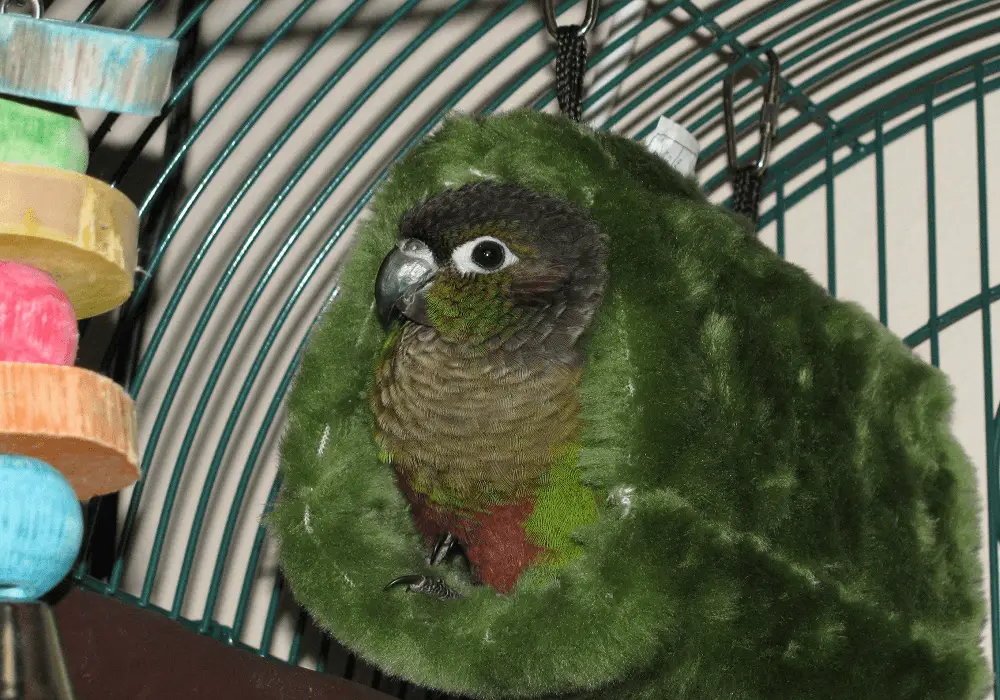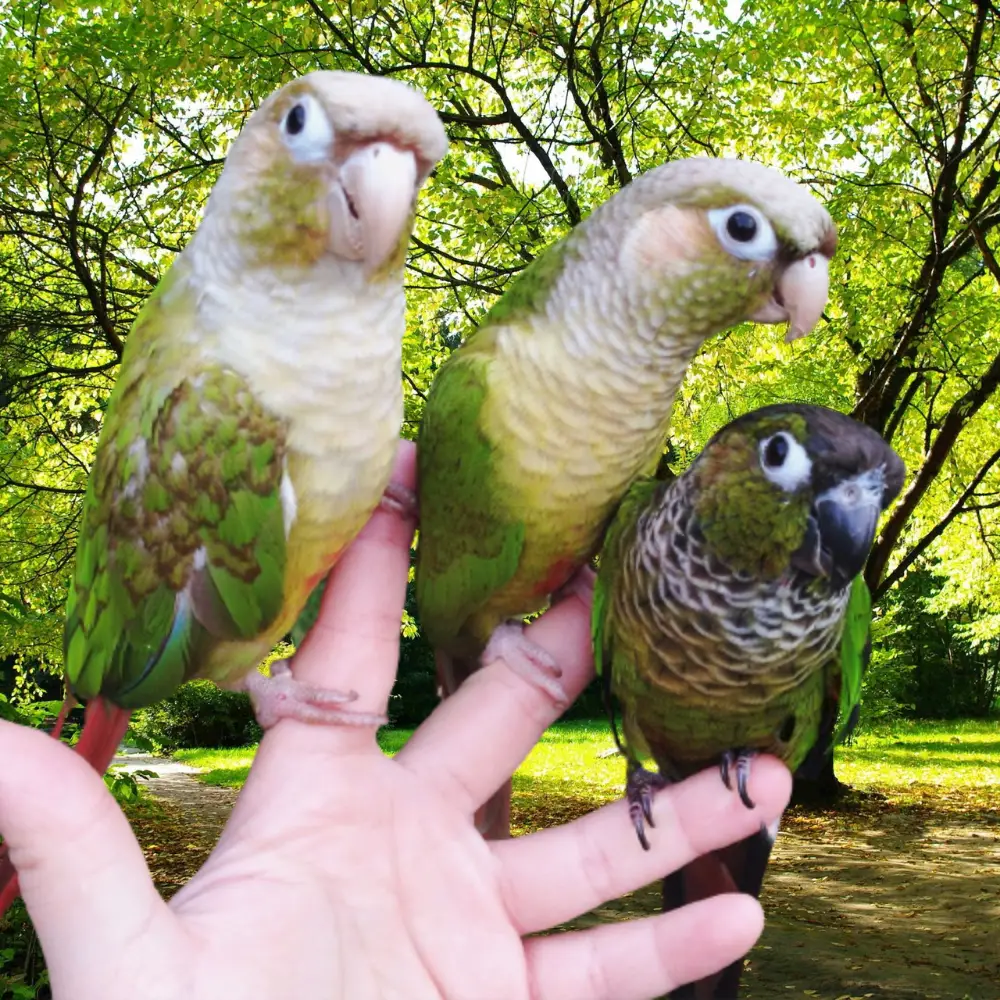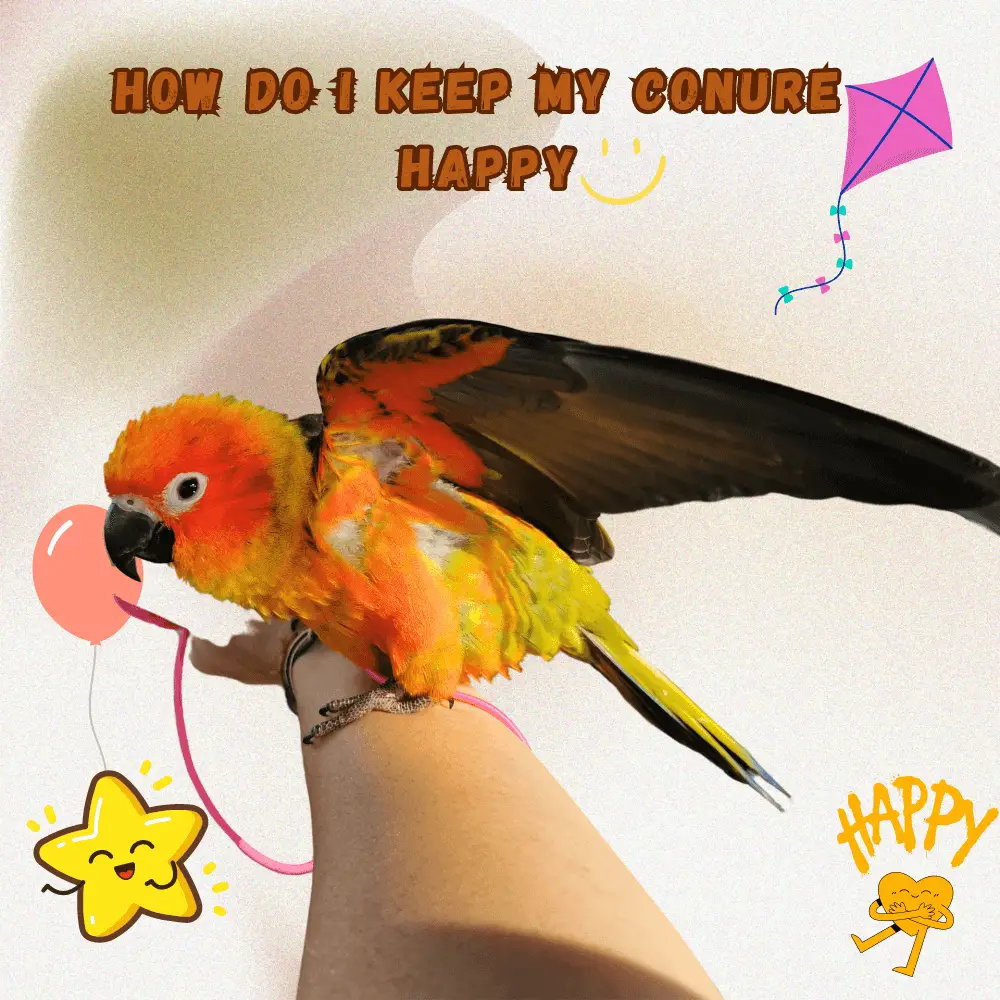How do I keep my conure happy: Conures are one of the smallest types of parrots, but they have great personalities. To keep these parrots entertained, you will need to provide a variety of toys that they can shake, chew, or tear to pieces as well as allow them to spend some time outside of the cage.
Although conures love socializing, you can keep them from getting bored when you’re not home by entertaining them with some exciting sights or sounds. Who knows, eventually the conures might be your entertainment.
Conure toys

Give your conure something to chew on
Chew toys will keep your conure busy instead of tearing up your furniture. Your conure should have access to chewable items in his cage. Good toys for chewing include the following:
- Wood blocks are made from balsa wood or pine.
- Leather slats and ropes.
- Vine balls.
- Sod mats.
- wicker baskets.
- Old books and newspaper sheets.
- Fruits and vegetables.
Put on some foot toys
Conures love to play with their feet. Try giving him some toys that he can grab, spin, or kick. Rattles, blocks with holes, and bells are good choices.
Save the toys that make the sounds
Your conure loves sounds, so try placing a bell inside his cage so he can shake it. Jingling balls and bell keys hanging with jingling metal toys will provide endless entertainment
Hide the tasty treats he can find
Conures love to hunt for food. Even if they are well-fed, they will spend their time searching for treats hidden in the cage. Place sticks and tree branches with leaves in the cage and hide toys and treats to provide a natural environment for your parrot to forage in. You can hide treats and toys inside the following things to keep him occupied:
- cereal boxes.
- Rolled newspaper sheets.
- Perforated pieces of wood.
- Egg carton.
- Wreaths of grapevines or willow branches.
- Sparrows nest.
- Spice cups filled with bird seeds.
Change new and old games
If your conure has stopped playing with its toys, it may be time to introduce other toys. Do not throw away the old toys, but remove them from the cage until the parrot gets tired of the new toys, and then replace them with the old ones. Your conure will play with old toys as if they were new.
- If your conure won’t play with the new toy after a day or two, remove it and try putting it back in another day.
- If the toy becomes dirty or sticky from use, it may be helpful to clean and refresh it to make it attractive to your conure again.
SOURCE: African Grey Parrot Pet
Playing with your conure

Let him roam around your house
Your conure will enjoy this opportunity to spread its wings, discover your home, and may even go outside with you for a little while. Allow your conure at least an hour outside its cage each day.
- Always supervise your conure while it is out of the cage so that it does not get into trouble.
- Make sure to protect your home before letting a bird roam it. Close windows and fans, and you should not leave any power cords or lit scented candles in place.
- Always supervise your conure when it is around children or pets. If your pets are aggressive towards any small animal, put them in a separate room.
Conure lava
Conures love to be bathed every other day. Fill a basin with water and place the bird in it. When the conure is in the water, it will bathe itself, but if it won’t, spray it with water to encourage it. After you’re done, wrap it in a towel and pat it dry gently.
- You can use Tupperware bowls or dog bowls to bathe your conure. The dish should be large enough for your conure to walk around comfortably in.
- If he doesn’t want to take a bath, take him outside and try again another day.
Take him outside while he’s tied up
It will be fun for him to take the bird out, but it must be restrained to prevent it from flying away. Leash your conure and place it on your shoulder while you hold the leash. You can also place it in a bird carrier.
- If it’s his first time abroad, he may be nervous, so keep the first visit short.
- Even if the bird’s wings are clipped, it still has the potential to escape, so always use leashes, rope, or a bird carrier while you’re outside.
- Spend time near windows if possible. This will help your conure get used to being outside and in fresh air without the risk of losing your bird.
Play hide and seek with your conure
Like children, conures love to play hide and seek. Hide your face behind a corner or something and let your conure look for you, then surprise it. Eventually, the bird will also try to hide.
Play ball with him
If your bird likes to throw things, a catch game will be a good game for him. Roll a plastic ball towards the bird, it will try to catch it and throw it. Get the ball back and roll it back towards the bird and keep playing until it gets bored.
- Depending on the size of the bird, you can use some balls such as ping pong balls, small pet balls, rope balls the size of golf balls, and game balls the size of birds
Avoid the conure feeling lonely while you are out

- Watch the amount of heat and sunlight the cage gets near a window to avoid overheating your conure while you are outside.
Bring him another bird as a companion
Conures are social birds, so they may enjoy flying outside around other conures and any other type of parrot. The birds will keep company with each other while you are outside.
- Make sure to choose a bird that has a personality that is compatible with your conure.
Conures are known for their love of pecking. If someone bites you, simply stand up and walk away. If the bird is outside, put it back in its cage and don’t give it attention or any other kind of reward.

